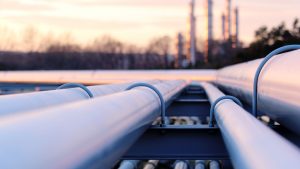Three thousand kilometres away from the heart of Canada’s oil and gas industry, the stroke of a pen could upend another major North American pipeline. This time it’s the State of Michigan that poses the threat. This time the target is the Enbridge Line 5. While Albertans tend to take pipeline threats personally, they shouldn’t. Energy security and good skilled jobs matter to all Canadians. But when it will matter enough for the federal government to show it has the fight to defend Line 5?
Last month we witnessed the cancellation of the Keystone XL pipeline. Before that the Northern Gateway and Energy East pipelines were suddenly deep-sixed. Now the Governor of Michigan has threatened to shut down Line 5, just like that, even though it’s proven to be a safe, affordable and reliable source of energy for more than six decades. This pipeline carries about 87 million litres of oil and liquids daily from Western Canada to refineries in the U.S. and Canada. It satisfies a demand for energy that cannot be met by rail or tanker trucks or renewable resources alone.
The benefits of Line 5 cannot be easily dismissed by anyone. It supports thousands of jobs and economies on both sides of the border. It’s a critical piece of energy infrastructure that supplies nearly half of the oil used by Ontario and Quebec through 10 regional refineries. Line 5 also delivers more than half of Michigan’s propane supply and also supplies jet fuel to Toronto’s Pearson International Airport.
Affordable, reliable energy is the lynch pin of any modern economy. Line 5 provides that energy security to both of our countries. Without it, there will be shortfalls of gasoline, jet fuel and diesel. That leaves energy rich countries like Canada and the U.S. in a position where neither are energy secure. Ironically, Michigan just experienced this firsthand. It declared an “energy state of emergency” during a recent cold snap, allowing for extended hours to transport home heating fuel when consumption spiked.
As concerns rise over the fate of Line 5 from a diverse chorus of stakeholders representing labour, business, manufacturing and agricultural groups, it’s seems reasonable to ask why the federal government isn’t taking a stronger stand. After all, it wasn’t all that long ago that the Justin Trudeau government showed it has what it takes to save pipelines.
Rather than allowing the Trans Mountain Pipeline expansion project to die, the government came up with a plan to buy it. Agree with it or not, that took courage. The suggestion is not to repeat the strategy, but to show the same level of resolve. Line 5 would benefit from a federal rooting section; one that’s loud enough to drive the message across the country and over the border, that this pipeline is of national significance too.
“We are going to continue to work to ensure energy security and jobs for Canadians and continue the fight against climate change hand in hand with the American government,” Prime Minister Trudeau said.
That’s great, but what’s the plan to save Line 5? Did it warrant a mention during the recent meeting with U.S. President Joe Biden? Canadians want to know.
As Canadians, we share more than a border with the people of Michigan. We share the same values. We want to protect our Great Lakes, our communities and our livelihood too. That’s every bit as important to Canadians. That’s why our government should be drawing the line at Line 5, demonstrating that it’s not about to allow politicking to scuttle another Canadian pipeline.
Paul de Jong is president of the Progressive Contractors Association of Canada. Send Industry Perspectives column ideas and comments to editor@journalofcommerce.com.











the opinion piece totally assumes that the line 5 segment poses no grave risk to the great lakes with the twin pipelines now 18 years past their life expectancy sitting in the high currents of the Straits of Mackinac, subject to anchor strikes. (3 strikes since april, 2018) mich tech study puts a worst case spill at about 2.5 million gallons –
devastation to the world’s greatest fresh water system. 94% of the line 5 product passes thru 400 water bodies in Michigan to get dirty tar sand oil product to Sarnia ontario. why should michigan be a high risk shortcut to get alberta oil to canada?